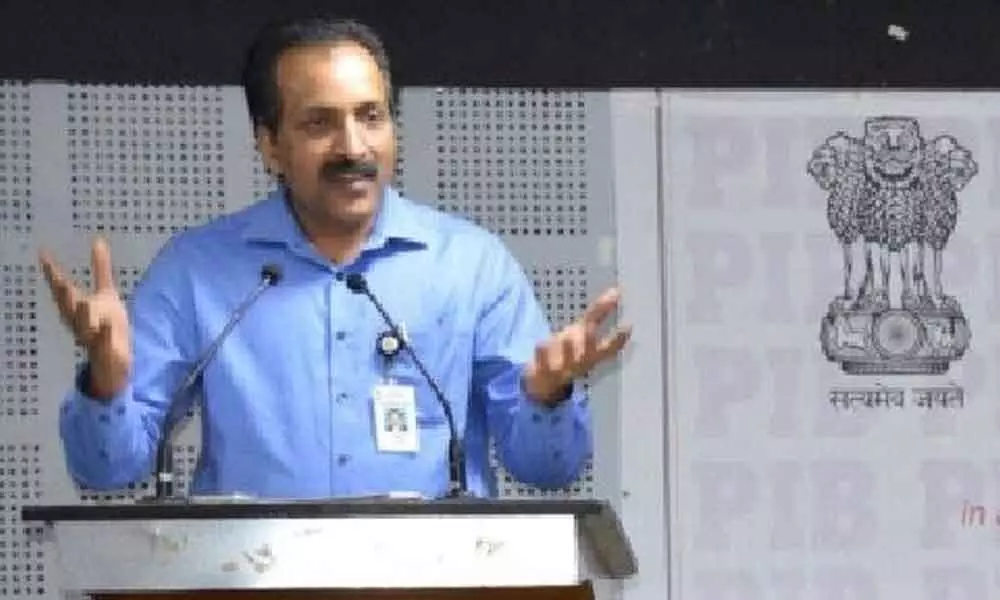Space challenges ahead, says dept chief
The country’s blue chip space project -- Gaganyaan/human space mission -- has missed its deadlines and the project has to be put back on track
image for illustrative purpose

Chennai: In a year when the Indian space sector is expected to see some revolutionary changes, S Somanath on Saturday assumed the charge as the Secretary, Department of Science and Chairman, Space Commission.
The space industry players are expecting rocket speed in ushering in policies and programmes for the entry of private sector players and also activating their regulator, finalising the foreign direct investment (FDI) norms and passing of the Space Activities Bill and others.
At the same time, he should also manage the interests of about 17,300 employees in Indian Space Research Organisation (ISRO) while reorienting its focus towards research and development.
The global space market is about $360 billion and is expected to grow to $1 trillion by 2040.
Further, the country's blue chip space project -- Gaganyaan/human space mission -- has missed its deadlines and the project has to be put back on track.
"The main challenge before Somanath is to reorient ISRO towards the new vision given by the government. The management of Indian space sector is with ISRO. So the entity has to see how space tech can be leveraged to start a new economic activity, as envisaged by the government, including job creation in the private sector. This will also improve the sector's contribution to the country's gross domestic product (GDP)," Rakesh Sasibhushan, Chairman, CII National Committee on Space, told IANS.
He said the country spends about $2 billion on the space sector, but the resultant contribution to the GDP is not much.
"The amount spent on the space programme has not transpired into economic growth. India does not have a robust private sector in space, whereas many other countries that have ventured into this sector have progressed far ahead of India. Prime Minister Narendra Modi had said that 'the government has no business to be in business'. Previously ISRO was hesitant to follow that and continued in the same old manner," Sasibhushan remarked.
For instance, there is a big dearth of satellite transponder capacity and many of the 800 and odd Indian television channels are using transponders of foreign satellites.
India with 17 communication satellites are providing 292.5 transponders and 25 GBPS of high throughput capacity.
The ISRO makes about four/five satellites in a year including communication, remote sensing and others which is grossly inadequate considering the potential.
"Further, commercial satellites were built in a supply driven manner, which hurt the user community," Sasibhushan added.

